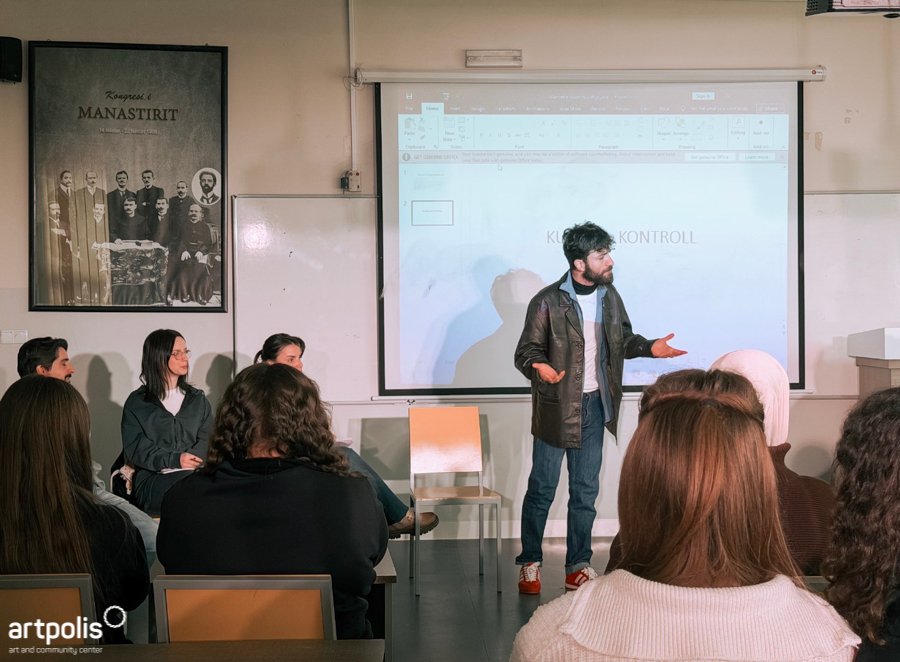
“Behind the Screen” in Vushtrri Highlights the Phenomenon of Online…
February 12, 2026

June 1-5, 2023
The 10-day educational study trip in the framework of the “Breaking Intercultural Barriers” program from Kosova continued in Serbia, Belgrade and Novi Sad. “Breaking Intercultural Barriers”, is a comprehensive initiative created to promote intercultural dialogue, cooperation and exchange between Kosova and Serbia.
For 5 (five) consecutive days, from June 1-5, 14 young artists from Kosova and Serbia, together with the organizational group from the Helsinki Committee for Human Rights in Serbia (HCHR) and the Art and Community Center – Artpolis, in addition to the workshops, also visited the cultural institutions of both cities.
In Novi Sad, the premises of the Union of Youth Associations OPENS hosted the enthusiastic group of young artists that listened motivational lectures by philologist/playwriter, Aleksandra Gjurić Bosnić and journalist/expert working with youth Jelena Božić. The different practices, stories and examples of regional cooperation but also of the resistance of different artists from Serbia to the wars in Bosnia and Herzegovina and Kosova, were the topics addressed.
The meetings of the participants of the “Breaking Intercultural Barriers” program with the co-founders and directors of Dah Theater, Dijana Milosevic and Jadranka Anxelić, as well as with the art historian Branko Dimitrijevic and the film director Stevan Filipović, were not only informative but also educational in terms of the importance of regional cooperation, artistic and cultural co-productions, which would serve the peoples of both neighboring countries in increasing artistic and cultural values with a focus on building peace.
The conversation with the founder and president of the Helsinki Committee for Human Rights in Serbia and human rights activist, Sonja Biserko, was welcomed by the group who enthusiastically listened to the stories and information about her activism, but also that of other activists, raising the voice against the war in Kosova and Bosnia and Herzegovina.
The 5-day educational trip to Serbia of this diverse group of young artists ended with a visit to the Center for Cultural Decontamination in Belgrade, where manager Lola Joksimović welcomed them to inform more about the projects and the role of this center in art and the urban culture of the city, where the truth despite challenges and difficulties and state policies manages to address many political and social issues. In the end, everyone was present at the show “Auteticna tumacenja”: ’68, dedicated to the founder of the center, the well-known artist and activist Borka Pavičević.
The program, which has been implemented since March 2015, is led by the Helsinki Committee for Human Rights in Serbia (HCHR), and over the next three years will be developed in cooperation with Artpolis from Prishtina and with the support of the European Union.